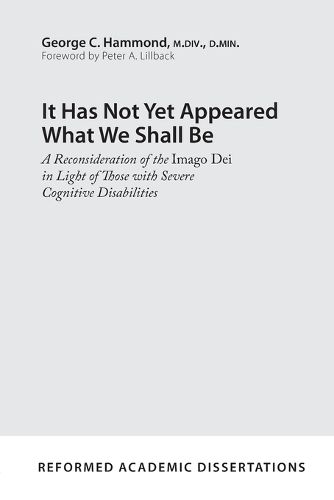Readings Newsletter
Become a Readings Member to make your shopping experience even easier.
Sign in or sign up for free!
You’re not far away from qualifying for FREE standard shipping within Australia
You’ve qualified for FREE standard shipping within Australia
The cart is loading…






This title is printed to order. This book may have been self-published. If so, we cannot guarantee the quality of the content. In the main most books will have gone through the editing process however some may not. We therefore suggest that you be aware of this before ordering this book. If in doubt check either the author or publisher’s details as we are unable to accept any returns unless they are faulty. Please contact us if you have any questions.
The doctrine of the imago Dei has been criticized for technically excluding people who suffer from severe cognitive disabilities. With such people in mind, Hammond reexamines the doctrine and sets forth a more accurate and inclusive understanding. This work concludes with implications and practical applications to help seminary professors, pastors, and church members include, embrace, and welcome people with severe intellectual disabilities and their families.
$9.00 standard shipping within Australia
FREE standard shipping within Australia for orders over $100.00
Express & International shipping calculated at checkout
Stock availability can be subject to change without notice. We recommend calling the shop or contacting our online team to check availability of low stock items. Please see our Shopping Online page for more details.
This title is printed to order. This book may have been self-published. If so, we cannot guarantee the quality of the content. In the main most books will have gone through the editing process however some may not. We therefore suggest that you be aware of this before ordering this book. If in doubt check either the author or publisher’s details as we are unable to accept any returns unless they are faulty. Please contact us if you have any questions.
The doctrine of the imago Dei has been criticized for technically excluding people who suffer from severe cognitive disabilities. With such people in mind, Hammond reexamines the doctrine and sets forth a more accurate and inclusive understanding. This work concludes with implications and practical applications to help seminary professors, pastors, and church members include, embrace, and welcome people with severe intellectual disabilities and their families.